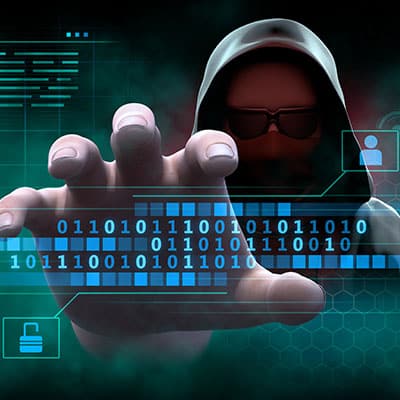
Phishing is amongst the most dangerous modern attack vectors, with absolutely no sign of this changing. These attacks are always getting better, more polished, and harder to spot, making them a real nightmare for your business’ cybersecurity. Let’s talk about how the nightmare plays out, and how you can help keep your team alert to such events.
How Does Phishing Work?
In many ways, phishing is often a numbers game. By creating a somewhat to extremely convincing message and sending it to as many recipients as they can, a scammer can identify promising targets for their scams, if not scam them with this initial message. While phishing can and does take many forms, most attacks utilize email as the preferred format. While we’ll be focusing on this particular approach here, it is important to remember that any communication could potentially be used as a phishing message and many of the practices we’ll discuss here will apply.
As we said, phishing attacks are getting better and better. More time is now being spent by attackers to collect publicly-available information about specific targets in more focused campaigns, crafting ruses that are more likely to work.
This makes it all the more important that you and your team are able to identify a phishing email—and any phishing attempt, for that matter—when you see one.
For instance, let’s say that John Q. Everyman opens his email to see a message that appears to be from his boss that instructs him to drop what he’s doing and complete a certain task. John, like most, would likely comply and do his best to make his boss happy. This is exactly what a scammer hopes will happen as they pose as an authority figure of some sort. They want your employees to act without any further consideration and share information that they really, really shouldn’t.
These scams, as we’ve mentioned, can also be extremely convincing, disguised as official correspondence well enough to fool someone without the proper training quite easily.
Ergo, Staff Training is Necessary
Taking into consideration that you likely invest in other training needs, based on government and industry demands or the complexity of your processes, it shouldn’t be too surprising that cybersecurity awareness needs to be added to that list as a priority. Phishing awareness and response definitely needs to be a part of this training.
Let’s review some elements of proper phishing training:
First and Foremost, a Training Platform Helps
That’s right—phishing is enough of an issue that there are training products created to address it specifically. Implementing one within your own organization and establishing in-house training requirements will help teach your team members a few critical pieces of information regarding phishing, such as:
How a Phishing Attack Works (and How That Makes It Dangerous)
Identifying a phishing attack, through email or other means, isn’t always the simplest prospect. Again, this makes it all the more important that each and every member of your team has an in-depth understanding of the threat and its potential consequences. Give them detailed descriptions of these possible outcomes to really drive in the message.
The Warning Signs that Telegraph a Phishing Attempt
Try as they might, there is no truly perfect phishing attempt—each and every one will have some tell that shows its hand. Your chosen training platform needs to address these tells and instruct your staff to look for them.
The Fact That Phishing Isn’t an Email-Specific Issue
We’ve already come out and said that a phishing attack can come in through various means of communication—voice calls, social media, and spoofed web pages are all also common methods. However, since the outcome of these different attack methods is all ultimately the same, it is equally important that your team is brought up to speed on these methods as well.
When It Comes to Identifying Phishing, Practice Makes Perfect
One of the most important features that these training platforms have are the various capabilities and options that allow you to practically evaluate how well your team members are learning these lessons. From quizzes to simulated phishing attacks, the right platform can give you insight into how effectively your training efforts have worked, and what needs to be focused on more.
Cybersecurity needs to be a priority for every single business operating today.
We’re here to help you avoid the pitfalls that modern cybercriminals will put in your business’ way. If you’d like to learn more about the cybersecurity services we offer to tri-state area businesses, give us a call at (866) 572-2850.
